Creating a Sales Commission Agreement is crucial for defining the terms between a principal (manufacturer) and an agent (salesman) who is hired on a commission basis. This agreement outlines the rights and responsibilities of both parties and ensures that all terms related to sales and commissions are clear and legally enforceable. Here’s a detailed breakdown of the key elements to include in a Sales Commission Agreement:
1. Basics of Both Parties:
- Identification: Include the names, contact details, and addresses of both the principal and the agent.
- Date and Duration: Specify the effective date of the agreement and its expiration or review date.
- Purpose: Clearly state the purpose of the agreement.
2. Description and Price of the Products:
- Product Details: Provide a detailed description of the products, including specifications, usage, warranties, and any damage claims procedures.
- Pricing Structure: Define the pricing policy, including fixed prices set by the principal and any authority the agent has to offer discounts.
3. Authorization Statement for the Agent to Sell:
- Sales Rights: Explicitly grant the agent the right to sell the products in a specified territory.
- Scope of Authority: Clarify the geographical area and legal rights the agent has, including responsibilities beyond sales, such as reporting and record-keeping.
Top Free Commission Agreement Templates:
Here are our hand-picked Top Free Commission Agreement Templates, designed just for you!
***** Template Rated 1st *****
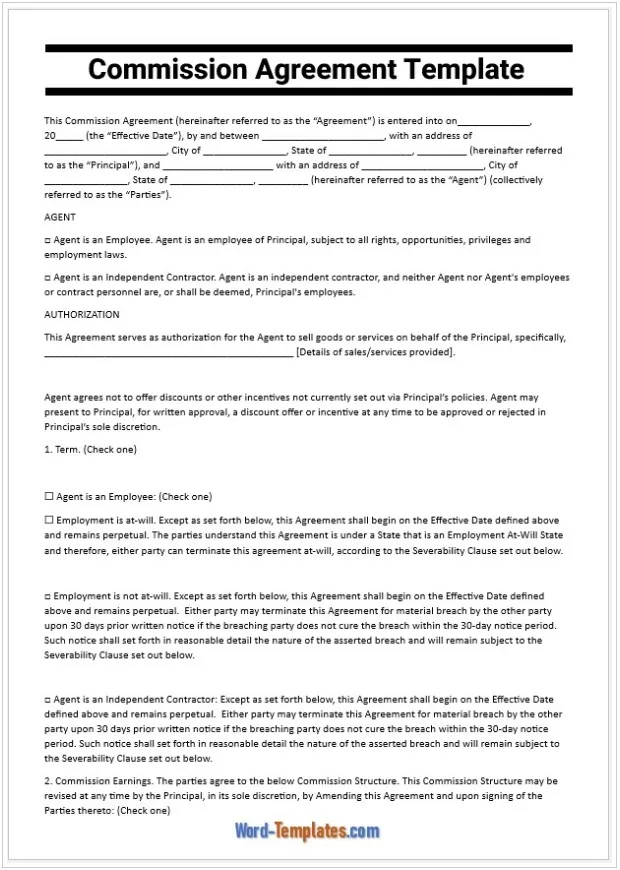
Source: Word-Templates.Com
*** Template Rated 2nd ***
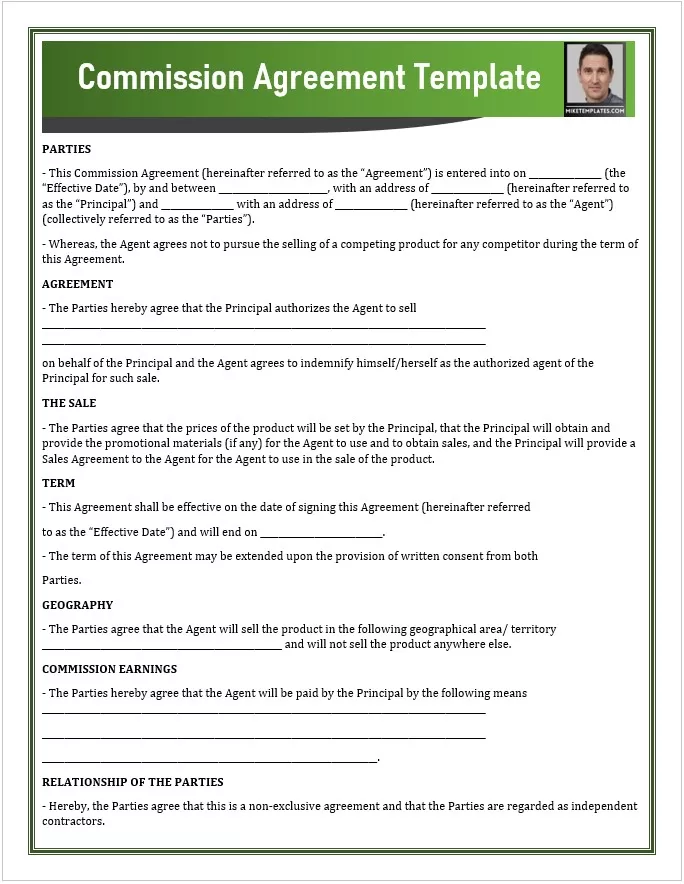
Source: miketemplates.com
*** Template Rated 3rd ***
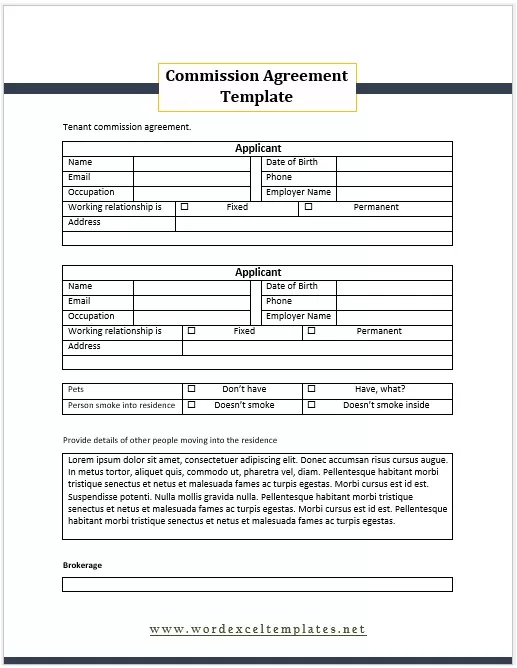
Source: wordexceltemplates.net
*** Template Rated 4th ***
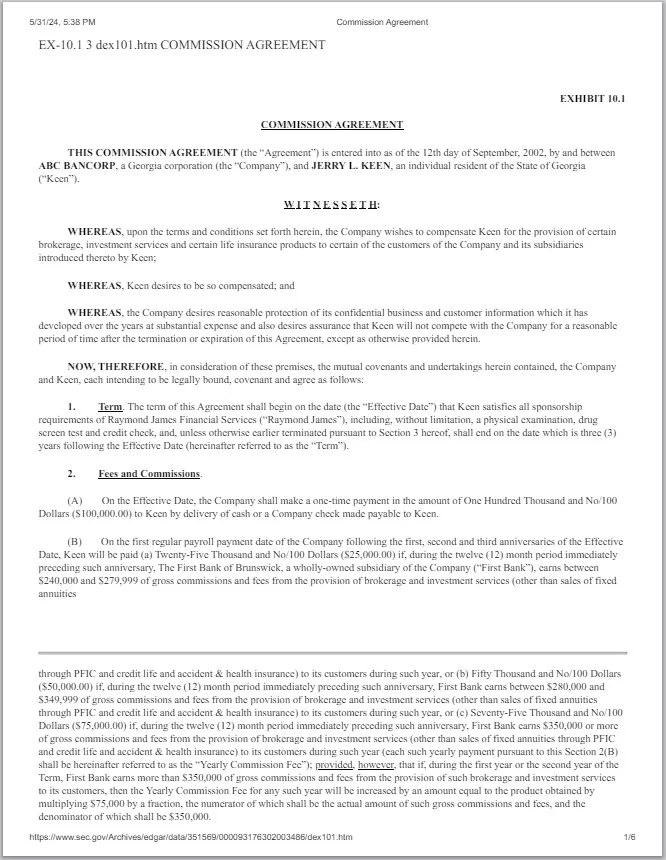
Source: sec.gov
*** Template Rated 5th ***
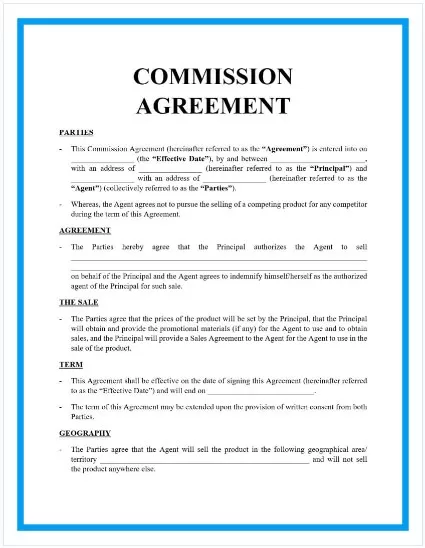
Source: signaturely.com
4. Non-compete Conditions:
- Exclusivity: Include a non-compete clause to prevent the agent from engaging with competitors or selling competing products.
5. Non-Disclosure Clause:
- Confidentiality: Emphasize the importance of confidentiality, prohibiting the agent from disclosing any proprietary information, such as pricing strategies and profit margins, to third parties, especially competitors.
6. Commission Payment Terms:
- Commission Structure: Detail how the commission is calculated (e.g., on the sales value or retail price) and the percentage of commission.
- Payment Schedule: Specify when and how commissions are paid (e.g., monthly via check, cash, or bank transfer).
- Commission Cap: If applicable, include a cap on the commission to specify the maximum earnings an agent can receive.
7. Termination of the Agreement:
- Breach of Agreement: Outline the conditions under which the agreement might be considered breached and the consequences of such a breach.
- Dispute Resolution: Provide for mediation or arbitration in the event of a dispute, specifying any third-party mediator roles.
8. Signature of Both Parties:
- Legal Binding: Include signature lines for both parties to sign, making the agreement legally binding and acknowledging agreement to all terms.
Conclusion: A well-crafted Sales Commission Agreement not only protects the interests of both the principal and the agent but also helps prevent misunderstandings and legal disputes by providing clear guidelines and expectations. It’s advisable to consult with legal counsel to ensure that the agreement complies with local laws and regulations, particularly regarding employment and commission-based payments.
